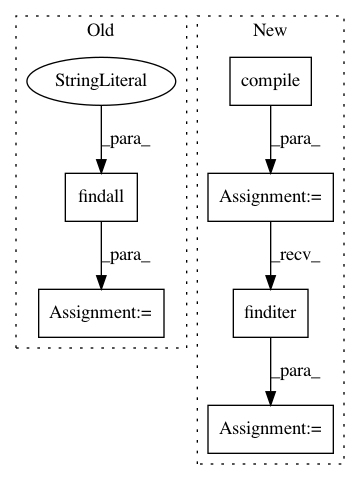e870ef14c590502fb0dc5ff3199e2602a87ec008,ner_v1/detectors/numeral/budget/budget_detection.py,BudgetDetector,_detect_max_budget,#BudgetDetector#Any#Any#,226
Before Change
if original_list is None:
original_list = []
patterns = re.findall(
r"(\s(max|upto|o?nly|around|below|less than|less|less den|\<\s*\=?)\s+(rs.|rs|rupees|rupee)"
r"?\s*([\d.,]+\s*[klmct]?[a-z]*|[\d.,]+\s*[klmct]?[a-z]*)\s*(rs.|rs|rupees|rupee|\.)?\s)",
self.processed_text.lower())
for pattern in patterns:
original = pattern[0].strip()
budget = {
"min_budget": 0,
"max_budget": 0,
"type": BUDGET_TYPE_NORMAL
}
if any([unit in pattern[3] for unit in self.unit_present_list]):
comma_removed_unit_text = pattern[3].replace(",", "")
amount = int(self.regex_object.unit_substitute(comma_removed_unit_text))
else:
comma_removed_number = pattern[3].replace(",", "")
amount = int(comma_removed_number)
if self.min_digit <= len(str(amount)) <= self.max_digit:
budget["max_budget"] = amount
budget_list.append(budget)
original_list.append(original)
return budget_list, original_list
def _detect_min_max_budget(self, budget_list=None, original_list=None):
Detects both minimum and maximum budget from text using regex
After Change
if original_list is None:
original_list = []
pattern = re.compile(r"\s("
r"(?:max|upto|o?nly|around|below|less than|less|less den|\<\s*\=?)"
r"\s+" +
self._budget_pattern +
r")(?:\b|\.|\s)", flags=re.UNICODE | re.IGNORECASE)
for match in pattern.finditer(self.processed_text):
original, amount, unit = match.groups()
budget = {
"min_budget": 0,
"max_budget": 0,
"type": BUDGET_TYPE_NORMAL
}
scale = self.get_scale(unit)
if amount.replace(",", "").replace(".", "").isdigit():
amount = float(amount.replace(",", "")) * scale
amount = int(amount) // casting to int for backward compatibility
if self.min_digit <= len(str(amount)) <= self.max_digit:
budget["max_budget"] = amount
budget_list.append(budget)
original_list.append(original.strip())
return budget_list, original_list
def _detect_min_max_budget(self, budget_list=None, original_list=None):
Detects both minimum and maximum budget from text using regex

In pattern: SUPERPATTERN
Frequency: 3
Non-data size: 6
Instances
Project Name: hellohaptik/chatbot_ner
Commit Name: e870ef14c590502fb0dc5ff3199e2602a87ec008
Time: 2019-03-18
Author: jain.chirag925@gmail.com
File Name: ner_v1/detectors/numeral/budget/budget_detection.py
Class Name: BudgetDetector
Method Name: _detect_max_budget
Project Name: hellohaptik/chatbot_ner
Commit Name: e870ef14c590502fb0dc5ff3199e2602a87ec008
Time: 2019-03-18
Author: jain.chirag925@gmail.com
File Name: ner_v1/detectors/numeral/budget/budget_detection.py
Class Name: BudgetDetector
Method Name: _detect_min_budget
Project Name: GoogleCloudPlatform/PerfKitBenchmarker
Commit Name: b2b82c89d8ec2dec10e112d741570b93ed8b9461
Time: 2020-10-15
Author: dphanekham@smu.edu
File Name: perfkitbenchmarker/linux_benchmarks/iperf_benchmark.py
Class Name:
Method Name: _RunIperf
